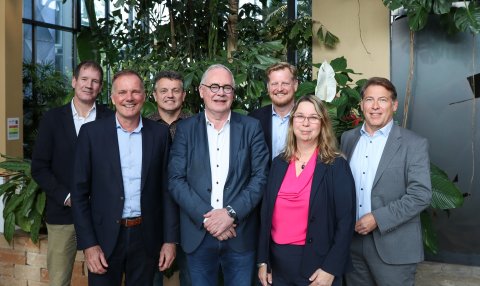
These are turbulent times for Real Estate and Facility Managers. There are significant developments in their field of work that heavily influences high-level business practices. In addition, RE & FM departments are becoming more and more expected to contribute to the overall business objectives within their organizations. We view these trends to be of a positive nature. By keeping up with these trends, you can anticipate uncertainties and turn them into strategic advantages.
Following an interesting conversation with René Buck (Founder & CEO of BCI Global) about how external factors today are influencing the choice for a new business location, we carried on another discussion with a thought leader in the field – Dr. Marie Puybaraud, Global Head of Research with JLL. She has shared her key takeaways on how to prosper in the future world of CRE. The tone of our conversation was set at the very beginning, when Puybaraud put forward an important call to action:
“Don’t be distracted. We have got to pay attention to the relevant trends, we have got to experiment with them, and respond with our real estate strategy to meet them. We must dare to try, try and fail, fail and learn, learn and grow.”
The Shift for CRE Managers
Puybaraud elaborated on the contemporary disrupting trends for CRE, like digitalization and workplace flexibility. She stressed that the most interesting development nowadays, is that the people inside organizations are expecting more and more to be given an optimal and unique “human experience” within the workplace. They want to be engaged, they want to be fulfilled, and they want to be empowered by their employer to take control of their own work environment. “This is a big shift in priority setting, beating financial performance and operational excellence,” Puybaraud shared. “Leaders in CRE realize that this trend is a key area for them to add value to an enterprise.”
Thinking Outside the Box
Puybaraud, states that with the awareness of these changing employee needs, comes a different mindset. In the world we live in today, we should no longer focus on the notion of employee productivity. “Productivity is a word of the past, and we should redefine what we actually mean by that.” Instead of talking about optimizing employee productivity, we were talking about optimizing “human performance,” as this notion incorporates a commitment by the organization to do something in return. In other words, it implies efforts are made by the organization to create the best possible working environment, boosting the “human experience.”
What can Corporate Real Estate do to boost the “human experience”?
In creating the optimal “human experience,” real estate has a significant role to play. Marie Puybaraud gave some sound advice, which you can listen to in full in our podcast. There are three important things for Real Estate Managers to be retain from this conversation:
- Create spaces that stimulate creativity and interaction between individuals. As a good basis for optimizing the workplace environment, it is important not to stay behind in the transformation of the physical space. Keep up with the Joneses on how employees can best use their available spaces. Some examples of this are to find ways to boost desk ratios, acquire third party spaces for co-working, and equip employees with the right technology to be as mobile as the need to be.
- Work together with HR to appropriately transform the employee mindset. The physical environment can’t be the only focus. For example: with all this ability to flex, do your employees know how to be a mobile worker? They might need some training to take that next step. Work together with HR to come up with a plan to deliver the right products and services that empower individuals within the organization to take control of their workplace. “Do not give the most innovative facilities to the best talent if they do not know how to use it.”
- Invest in qualitative rewards for employees. It is not just about getting a salary, having a holiday, doing training, or getting bonuses to increase human performance. What really contributes are the qualitative aspects of work, resulting in an experienced “emotional salary” for employees. Recognize them for achievements and contribute to life fulfillment beyond work, to create that special commitment to the enterprise. Real estate strategy contributes here, as it is there to support employee well-being and their personal development in cooperation with HR, to create an environment that supports human leadership in the workplace.
Want to learn more?
These are some specific takeaways Marie Puybaraud shared. However, there are some hidden gems as well. If you sign up on our website, you will be able to listen to our complete discussion for free. In addition, you will also get access to all the other podcasts that are a part of the series.
As the future belongs to those who prepare for it today, we want to support you by delivering more podcasts with thought leaders around topics relevant to real estate. We aim to provide a multitude of views and perspectives to prepare for future growth.
Stay tuned.





















